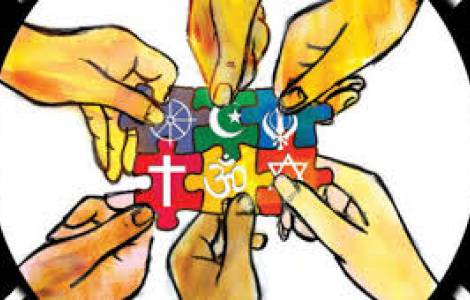
Internet
Astana (Agenzia Fides) - Religious tolerance, nuclear disarmament and environmental sustainability are the three cornerstones that forged the economic-social strategy implemented by Nazarbaev and also the city of Astana. This is illustrated to Agenzia Fides by Giannicola Saldutti, editor of InTerris and associate researcher at the Institute of Advanced Studies in Geopolitics and Auxiliary Sciences (IsAG), who recently returned to Italy after having spent a period in the Kazakh capital, on the occasion of the twentieth anniversary of the foundation of the same city.
Astana, which celebrated its important anniversary on 6 July, "was created to revive the image of a new Country, eager to impress its own brand and play a strategic role in the contemporary geopolitical game. Therefore, urban planning principles and symbolism refer directly to this new ambition: one example is the Palace of Peace and Reconciliation, symbolizing the coexistence of the numerous cults and the many ethnic groups that make up the Kazakh mosaic. At the same time, environmental sustainability and the denuclearization of the Country have become absolutely necessary, considering the massive damage suffered by Kazakhstan during the Soviet period: the Semipalatinsk nuclear polygon was closed in 1991, when the entire Country gave up the production of atomic energy", explains Saldutti.
The twentieth anniversary was celebrated during a long week of events. The researcher reports: "There was a large open-air concert held near the National Museum, followed by a fireworks display and light games that recalled the national colors: gold and light blue. The city also hosted two major events for the Asian continent: the Forum of Mayors of the Cities on the Silk Road and, above all, the inauguration of the Astana International Financial Center, a strategic center designed in collaboration with Shangai Stock Exchange and Nasdaq, which aims to become the main financial hub of Central Asia, as well as a reference point in Islamic finance".
"Today Astana is a 'cathedral in the desert' in the true sense of the word. One feels protected in a technological glass bell, but already climbing on the Bayterek belvedere and changing point of view one realizes, with utmost amazement, the titanic enterprise carried out by Kazakhstan: to build from nothing a real capital in the beautiful half of the steppe, something that, seen with your own eyes, is amazing",notes the scholar.
With its modern skyline and smart city features, Astana is a candidate for becoming the main bridge between East and West: "At the moment, it is establishing itself as the largest center of investments and projects in the Central Asian world. A large presence of investments, especially in the construction industry, mainly from China and South Korea is clear in the city. Astana finds its meaning in the name (in Kazakh it means, in fact, "capital"): the city has been designed to start, from a first symbolic and then substantial point of view, a nation building process that, in the midst of the crisis of the 90s, seemed a gamble. The old capital of Almaty suffered from a purely Soviet atmosphere, while the Kazakh ambitions needed a new symbolic place, placed at the center of Eurasia. Nursultan Nazarbaev recently stated that the Kazakh independence took place just as Astana was presented to the international community in terms of capital. It is therefore legitimate to think that the future of this city will undoubtedly be the future of the entire Country", concludes Saldutti.
Next October, the Kazakh capital will host the VI Congress of world and traditional religions leaders, with the theme "Religious leaders for a safe world".
In June, the President of Kazakhstan, Nursultan Nazarbayev, invited Pope Francis to participate in the initiative, through an invitation letter delivered to the Vatican by the President of the Kazakh Senate, Kasym-Zhomart Takayev, received by the Cardinal Secretary of State, Pietro Parolin. (LF) (Agenzia Fides, 2/8/2018)